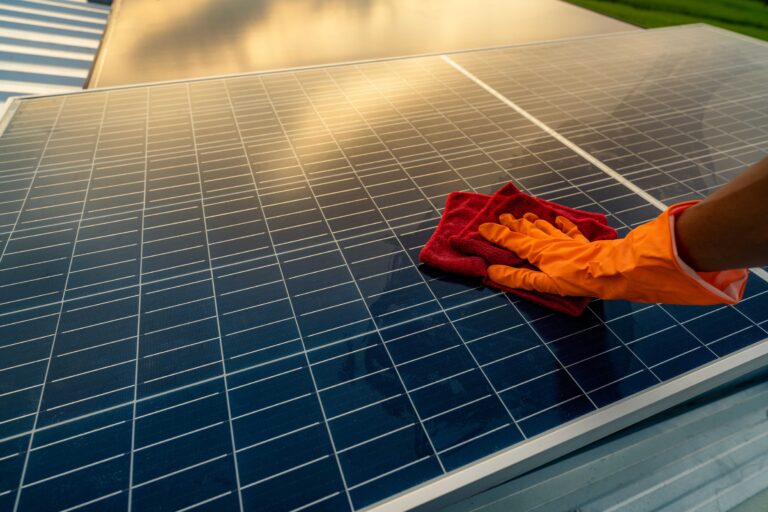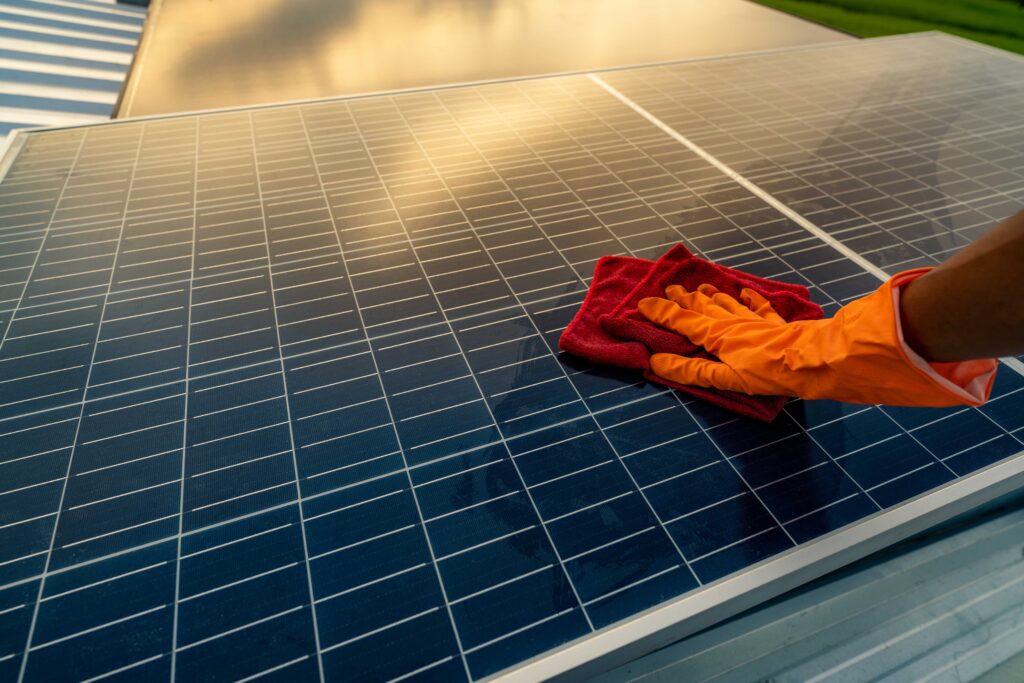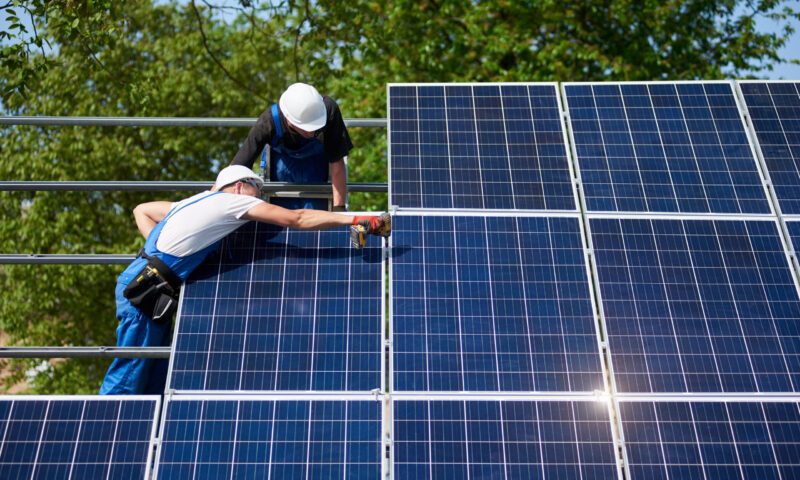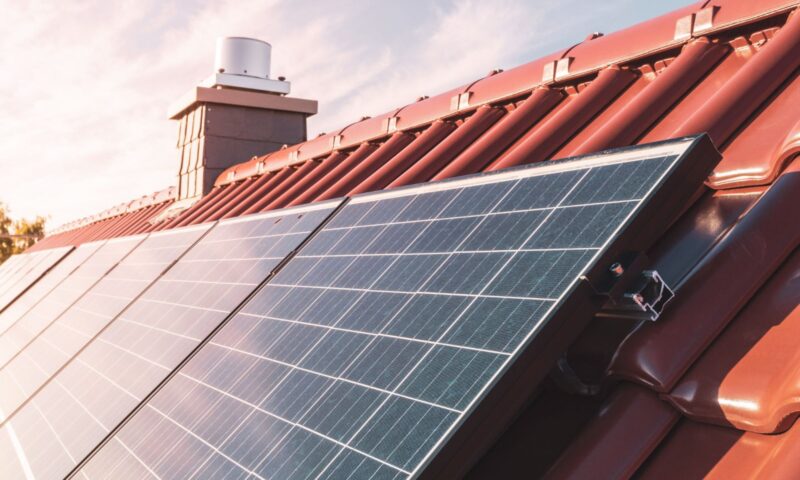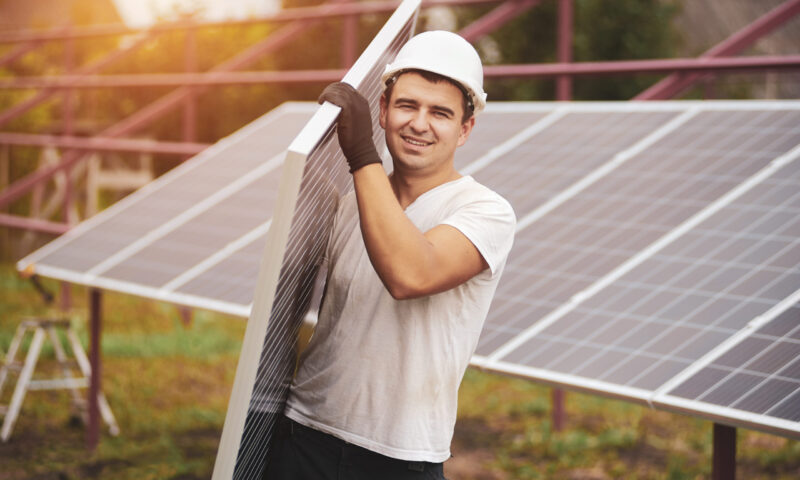Tematyka artykułu:
Of all the parameters that affect the efficiency of a PV installation, one of the most important, which we can also directly influence, is light transmittance related to the cleanliness of photovoltaic modules. In extreme cases, dirt reduces efficiency by up to 20%. So how can we properly keep the panels clean so that they work at the highest possible speed, can we clean them ourselves and finally: are there self-cleaning panels?
